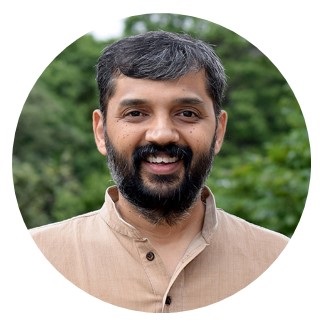|
Program Dates
|
Venue/Deadline IIMB Campus
Early Bird Deadline: 28 May, 2025
Register By: 08 Jun, 2025 |
Program Fees (excluding GST) Residential: Rs.1,06,500 |
Apply Now |
This program is designed for senior to mid level managers and emerging leaders who are responsible for driving organizational growth, managing stakeholder relationships, driving meaningful change and leading cross-functional initiatives.
As a participant of this Short Duration Programme, you will be able to enjoy some exclusive benefits other than the outcomes such as skills and knowledge enhancement and building specific competencies that can help shape your career growth.
Some of the exclusive benefits of attending this programme are listed below –
Ms. Preethi
Landline No.:+91-80-26993375
Mobile No. +91-8951974073
Email: preethi.s@iimb.ac.in
‘I have learnt that people will forget what you said, people will forget what you did, but people will never forget how you made them feel!’ – Maya Angelou
Programme Overview
Influencing your Stakeholders for Collective Growth – This executive education programme offers an interactive insightful learning experience designed to empower leaders with the mindset, attitude, knowledge and skills needed to effectively influence stakeholders when making key decisions. This helps leaders to seamlessly drive collective growth and create lasting impact in their organizations and communities.
In today’s dynamic business landscape, effective leadership entails navigating complex networks of stakeholders. It requires leaders to develop the capacity to align organizational, personal, and team member interests toward a common purpose to achieve success. However, this task is easier said than done.
Research conducted by Robert Anderson and William Adams for their book, Scaling Leadership, identified that the number one differentiator of effective leaders is strong people skills. Six out of ten of their biggest strengths relate to people skills, such as listening, meaningful connection, and empowering team members through influence rather than authority.
Through this program, participants will gain awareness, practice skills, and learn strategies needed to inspire, engage, and influence diverse stakeholders, even when faced with contradicting motivations. They will learn how to pursue shared objectives as they lead their organizations toward overarching goals.
Programme Objective
Programme Content
Key Benefits/Takeaways
Pedagogy
This will be an interactive programme where the participants will be expected to engage proactively with the material. Case studies, in-class exercises, and presentations are components of the pedagogy. Participants will be given assignments to work on individually and in teams that will be presented and discussed in class. The course is designed to ensure the immediate application of concepts introduced during the programme to enhance learning.
Programme Director

Deepak Malghan is a chemical engineer and ecological economist. Among other recognitions for his contributions to theoretical ecological economics, Malghan received the 2015 VKRV Rao Prize in Social Sciences and the 2023 T N Khoshoo Memorial Award. Malghan has served as an editor at Ecological Economics, the field’s flagship journal (2018–23).
Malghan is also a historian. He is the co-author of an intellectual biography of J. C. Kumarappa (1892-160), a pioneering Indian ecological thinker and political philosopher (Oxford University Press, 2016). He is currently working on a book project (provisionally titled Citius, Altius, Fortius: A History of How the World Became Efficient) that develops the global history of the modern idea of efficiency.
Malghan has also worked on questions of social diversity deficits and social exclusion at elite public institutions in India, and this work informs his pedagogical approaches to addressing conflicts within organizations.

Sushmita Usha Devarajan is a partner at Organisational Development Alternatives (ODA), specialising in organisational culture and leadership development. With expertise in conflict transformation and international certifications in transformative coaching, dialogue facilitation, mediation, and training, she has contributed to corporations, government organisations, educational institutions, and non-profits, both in India and internationally in the last 15 years.
Sushmita serves as faculty on the topic of ‘Influencing’ in the TISS and ODA collaboration ‘Organisational Development Certification Program’. She is a co-founder of an NGO called Sadbhavna, dedicated to creating safe spaces for young people to engage in socially relevant difficult conversations.
Sushmita’s professional journey includes serving as an external consultant for The World Bank, where she facilitated international mediator workshops and addressed multi stake holder conflicts related to World Bank projects.
She was a Master Trainer, Master Facilitator, TOT (Training of Trainers) Trainer, Coach, Mentor and Design Specialist at a New York–Tunis based facilitation and dialogue organisation called Soliya – a UN partnered international non-profit. She collaborated with organisations, professionals and teams across the globe for more than a decade in her work with Soliya.